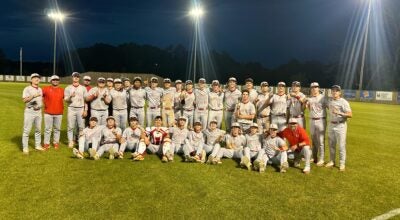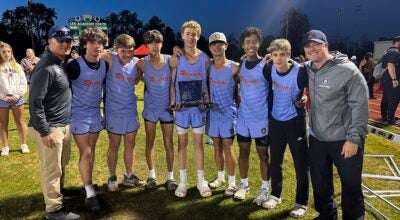University High School Grads part of Landmark Study
Published 10:30 am Friday, July 20, 2018
Some graduates of University High School have the opportunity to be part of a new phase landmark study that began when they were teenagers.
Nearly 60 years ago, the University High School classes of 1960 through 1963 participated in a study called Project Talent. Facilitated by the American Institutes for Research, Project Talent was the most comprehensive study of American high school students ever conducted. Approximately 440,000 high school students from 1,353 schools across the country – private, public, parochial, segregated and integrated – participated in the study.
The follow-up study, which launched last month, will focus in part on the effects of Alzheimer’s disease and dementia. Susan Lapham, director of Project Talent, said she hoped findings for the project will eventually lead to innovations in understanding memory disorders.
“What we’re hoping to do is what the Framingham Study did for heart disease,” Lapham said. “We’re trying to look at what we call the protective factors and the risk factors. Once we identify those, we can make sure people understand that doing something when you’re in high school will help reduce your risk for dementia.”
The original primary purpose was to collect a variety of information, with participants answering hundreds of questions over the span of two days.
It included tests like ACT-like information tests, personality tests, thinking tests and over 100 questions dedicated solely to health. The idea was that the answers to the questions, once they were tabulated, would help the student and the guidance counselor guide the student to the right career for them.
1960 was also in the time of the Space Race, something in which Lapham said the original researchers might have taken particular interest.
“This was primarily, we think, prompted by Sputnik. Russia and the US were engaged in a Space War, and there was a tremendous amount of feeling in the high schools at the time that students weren’t being guided into what we call STEM careers,” Lapham said. “The idea was this would help identify those students who had strong skills in aeronautics and engineering and get them into the space program. That wasn’t the main goal, but we do think that was in the back of their minds.”
From 2010 to 2013, researchers with Project Talent traveled across the country to over 700 50-year class reunions. During this time, Lapham said, researchers reconnected with participants, as well as gauged their responses to the possibility of a follow-up study.
Lapham said the overall response was positive, with some participants speaking so fondly of the study that they still carried their ID cards from 1960 in their wallets.
“I had a woman who said she scored very high in accounting, and her guidance counselor said to her, ‘Yeah, you scored high in accounting and you probably would be a good accountant, but don’t worry your pretty little brain about that. You’re just going to get married and have kids,’” Lapham said. “She ended up getting married and had four kids and then got divorced. But, she said, she remembered that conversation. So she told herself she was going to become a CPA. She said to us, ‘I never would have thought of that if I hadn’t known I was really good in accounting.’”
Lapham said that, in a way, the study is like a national yearbook, capturing snapshots of people from all walks of life.
To reflect the participants, as well as demographics today, the group is “oversampling” from the pool of minority student and students who attended segregated schools. The reasoning for this, she said, is to have a representative sample of today’s race and ethnic distribution.
In Oxford specifically, 344 students at University High School participated in two days of testing in 1960. Project Talent has selected approximately 20 percent of those individuals to participate in the current study.
If individuals who attended University High School from 1960 to 1963 are interested in participating in the study and have not been contacted by researchers in the past month or so, they can contact Project Talent directly at 866-770-6077 or send an email to projecttalentstudy@air.org. They may also contact us to provide information about class members or friends from high school who are now deceased.
“The Project Talent generation is very important in the history of this country,” Lapham said. “Now, they have the opportunity to help us address one of the most pressing public health issues currently facing our country: the skyrocketing rate of Alzheimer’s disease and other forms of dementia.”





